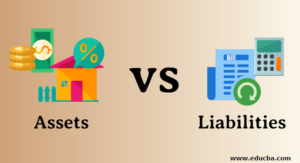On several occasions, I’ve found myself in awkward conversation on the subject of Assets with ‘Formally’ schooled folks, mostly graduates, with some of them in business related field.

The conversation usually arises when I hear someone unintentionally or unknowingly calls something which is not an asset as an asset. They call their expensive gadget, or motorbike, car or even someones sleeping house as an asset.
Recently I bought a seven month old used laptop with market price of 1100 US dollars at 720 US dollars. The owner needed urgent cash. One of my friends, a graduate in Computer science, said I got an asset, I told him NO. It’s not an asset until it proves so.
Two weeks later, someone was offering me 850 dollars. If I sold it, NY friend would’ve been right, but I turned it down. Back to the topic. According to most people’s understanding, Asset is something which has value and can be sold. Just because something can be sold doesn’t make it an asset and almost everything has value.
In business accounting, asset is something which has value and can be used to generate income. Anything of value and contributes to income generation is listed under the asset column.
How about in general terms. What makes something to qualify as an asset. The answer lies when that item is considered from three perspectives. Cash flow, Appreciation and Time.
If anything of value, car, building, business, equipments et cetera generates ‘positive” cash flow, or appreciates, at that particular point in time of consideration, then it can be called an asset.
Let me explain a little. If a business is making lose at the end of the business circle, that business is a Liability. If it breaks even at the end of the business circle then its neither an asset nor a liabilty. If the business makes profits, then it becomes an ASSET at that very time of consideration. (Assuming business value remains constant – no appreciation)
If you a buy house for sleeping, it’s automatic liability! Unless your a real estate agent, people don’t buy sleeping houses to be sold. Let’s say you consider selling the house, and you sell it for more than its buying price (appreciated) or you rent it out (cashflowing), then at that particular TIME, the house can be considered an ASSET.
The same is with personal cars, you buy personal car not for income generating project. You will spend money on fuel and maintenance every month. The car is taking cash from you. Assets are suppose to bring money to you, not take money from you. This is were the big misconception is.
Let’s see from numbers perspective. You bought a personal car for 5000 dollars. Every month you spend 100 dollars on fuel and maintenance. In 5 years time, the car would’ve costed you 11000 dollars (6000 + 5000) And then you sell it for 2000 dollars. You’re 9000 dollars in the hole while all this time you been telling your friends the car is an ASSET!
But if you start using the car for let’s say Ubering, taxi, doing some small work. Let’s say the 100 dollars you spend in a month brings 200 dollars back (100 dollars profit). In the same five years, the car would’ve brought you 6000 dollars positive cash flow. And if you sold it for 2000 dollars, the 5000 dollars car would’ve made you (8000 – 5000) 3000 dollars positive cash flow. Then you would’ve called it an Asset.
I might say I use the car to go to work, or it helps me in running my business. The same rule applies. Can you verify with numbers that the money you made or money you saved by using the car has resulted in positive cash flow or positive benefit in monetary terms?
I’m not against people owning sleeping houses or personal cars or expensive gadgets. I actually think it’s a good for a man to own his home and maybe some ride if they can afford! What am against is when people call these things with the wrong names.
In financial matters, calling things in wrong names like calling a liability an asset can put one in a blind (difficult) financial situations.
Imagine your there thinking you have assets when in real sense, your piling liabilities which keep taking money away from you while they keep losing value.
Asset can only be verified when considered in CASHFLOW terms and Appreciation point and at a particular TIME.